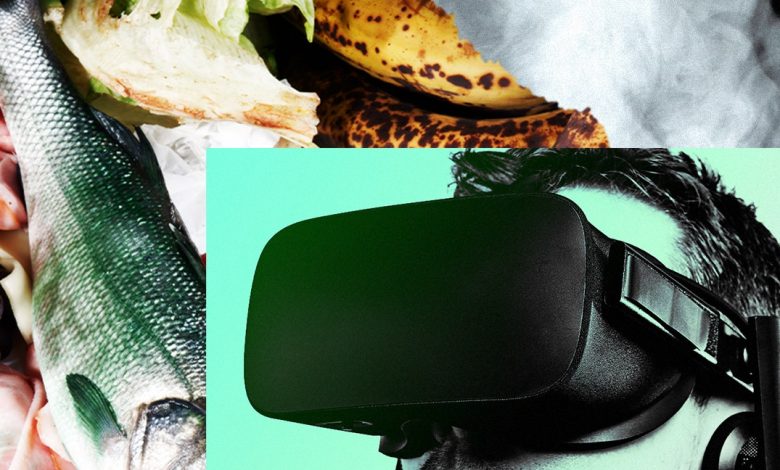VR still stinks, and its stench has many notes. It smacks of rich white guys wildly overfinancing and consistently exaggerating the ever-on-the-edge-of-a-breakthrough technology. It has a festering funk of entrenched privilege, despite purveyors’ claims that it promotes empathy and inclusion. It’s too expensive and will only get more expensive. Meta and the crypto community’s forays into VR stand to make it more rotten. It also smells, some complain, underbaked: in VR no one has legs. But perhaps more than anything, the metaverse stinks because it doesn’t smell something.
Smell is the blind spot of VR. Most VR technologists don’t even notice the lack of scents or worry about the consequences, despite convincing scent technology becoming available.
Fragrance may be ours realest feeling – the feeling that most ground us in reality. If virtual reality is to live up to its potential, it must wake up and smell its sickening odorlessness.
Before you turn nose up at Smell-O-Vision 2.0, smell what sniffing can do for you.
Smell helps us detect incoming threats. We will not eat food that smells spoiled and we will move away from a whiff of smoke or gas. We are evolutionarily programmed to react quickly to smells and make lasting judgments about them. Threat detection in scent also reminds us that we are vulnerable and blurs the lines between our bodies and the environment. All these factors deepen the immersion – one of the main goals of virtual reality.
Scent also heightens the emotional stakes and situates an experience in our personal history. For sight, sound, taste and touch, a stimulus passes from the sensory organ to the brain’s more evolutionarily recent thalamus, which processes complex processing skills. Smell is different: it’s all old brains. Smells pass through the thalamus and travel directly from the nose to the olfactory bulbs behind where the glasses rest on your face. This tongue-like projection of nerves both processes smells in the brain and is closely intertwined with older brain regions, particularly the amygdala, which handles emotions, and the hippocampus, which deals with memory. When an important memory forms, you usually feel emotions. If you also smell something, memory, emotion and smell will merge. Hence, scents evoke memories with such startling vibrancy: the bright, acrid hit of chlorine undercut with stale sweat that unmistakably transports you back to your high school swim team locker room; the fluffy mix of rose water, burnt toast and cigarettes that evokes your grandma’s love.
Most importantly, smell is important because all of our senses flow together and build on each other. Smell is a “supportive” sense: not always noticeable, but often powerfully operating under the radar and easily triggering strong emotions, judgments and memories without conscious thought.
In contrast, the loss of smell, anosmia, is almost always described as horrible by those who have had the condition. Covid anosmics suffer from higher rates of depression and anxiety. They lose interest in sex as well as food, because taste is so dependent on smell. Most of these people regain their sense of smell, but it can take months.
Source: VR Still Stinks Because It Doesn’t SmellUK NEWS TO DAY













